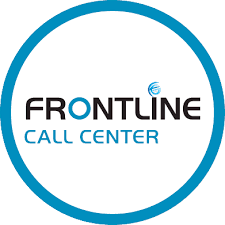Navigating Transparency: The Impact of the Corporate Transparency Act on Foreign Companies in the US
In an era marked by a growing demand for corporate accountability, the United States has taken a step toward greater transparency by implementing the Corporate Transparency Act (CTA). Primarily designed to combat money laundering and illicit financial activities within the United States, the Act also holds implications for foreign companies engaging in business on American soil.
Keep reading for how the CTA will impact foreign companies doing business in the United States.
Understanding the Corporate Transparency Act
The CTA, signed into law in January 2021, aims to enhance the transparency of corporate ownership and controlling interests. Beginning January 1, 2024, the legislation mandates that certain companies disclose beneficial ownership information via Beneficial Ownership Information Reports (BOIRs) to the Financial Crimes Enforcement Network (FinCEN).
Understanding BOIRs
At the heart of the CTA’s transparency efforts are BOIRs, which require entities to provide detailed information about their beneficial owners. A beneficial owner is defined as any individual who, directly or indirectly, exercises substantial control over a company or owns or controls at least 25% of the ownership interests of that company. The BOIRs must include identifying information for these individuals, such as their name, address, date of birth, and identification number.
For more information about BOIRs, specifically who is required to file, who is exempt, and the necessary information for filing, check out this article on our blog.
What impact will this have on foreign companies?
The CTA introduces a new layer of compliance and disclosure requirements for foreign companies operating in the United States. The CTA applies not only to domestic entities but also to those conducting business within the U.S. This means that foreign companies with subsidiaries, branches, or significant operations in the country must navigate these regulatory changes to ensure compliance.
Failure to file or update a BOIR or providing false information on a BOIR can result in penalties of up to $500 per day or imprisonment and steep fines.
The implications for foreign businesses are multi-fold:
- Increased Compliance and Reporting Obligations:
Foreign companies must familiarize themselves with the Act’s provisions and ensure that they comply. Something as simple as an address change for a senior official is enough to warrant an updated form. This may involve reviewing existing corporate structures and making necessary adjustments to meet the reporting requirements. - Enhanced Due Diligence in Business Transactions:
The Act’s focus on beneficial ownership information will likely lead to more comprehensive due diligence processes in business transactions involving foreign companies. Investors, partners, and other stakeholders may scrutinize ownership structures more closely, impacting the ease with which foreign entities can engage in mergers, acquisitions, or joint ventures.
- Potential Impact on Reputation:
Non-compliance with the CTA could have reputational consequences for foreign companies. In an era where corporate social responsibility and transparency are valued, failure to adhere to regulatory standards may negatively affect a company’s image and standing in the U.S. market.
- Adaptation to Evolving Regulatory Landscape:
Foreign companies must stay vigilant and adaptive in evolving regulatory landscapes. Keeping abreast of any amendments or updates to the CTA ensures continued compliance and a proactive approach to regulatory changes.
Further Considerations
The CTA marks a new era in the fight against financial crimes, with significant implications for foreign companies operating in the United States. By mandating the disclosure of beneficial ownership information, the act aims to peel back the layers of anonymity that have shielded illicit activities, bringing about a more transparent and secure business environment. As the regulatory landscape evolves, foreign entities must stay vigilant and proactive in their compliance efforts.
If you have questions or need assistance navigating the challenges and opportunities the CTA presents, contact a VSH professional. With dedicated practice specialists in business expansion and cross-border assets, we can guide you through the complexities of business in the U.S.



